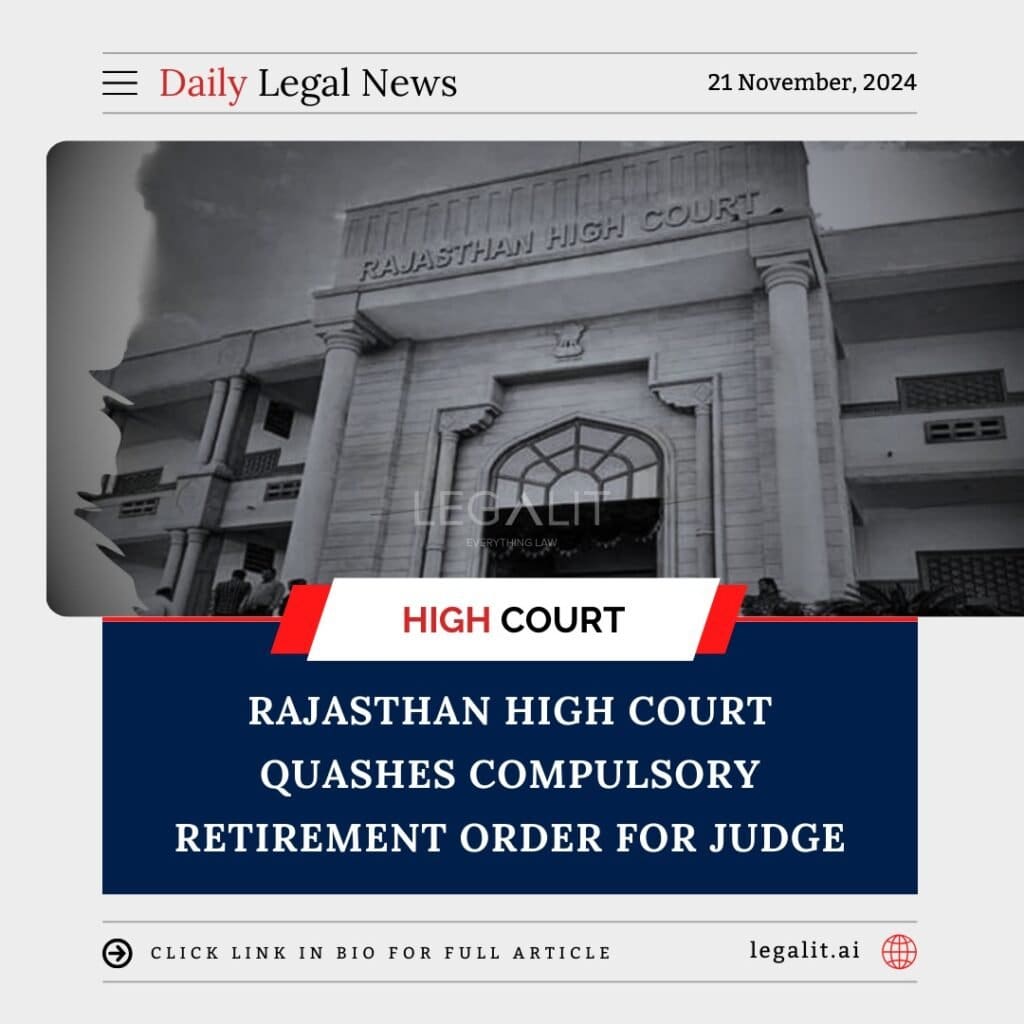
The Rajasthan High Court recently overturned a decision imposing compulsory retirement on a district judge, citing a lack of sufficient evidence and procedural lapses. The judgment underscores the need for fairness and transparency in disciplinary actions against judicial officers.
Background:
The district judge was subjected to disciplinary proceedings and subsequently retired compulsorily over allegations of misconduct. The judge challenged the decision in the High Court, arguing that the charges were baseless and the process leading to the punishment violated principles of natural justice.
Court’s Rationale:
The Rajasthan High Court found that the disciplinary authority failed to substantiate the allegations with concrete evidence. The court emphasized that decisions affecting the career and reputation of judicial officers must be based on clear and convincing proof. It also noted procedural irregularities in the inquiry, which compromised the fairness of the process.
Existing Measures:
Judicial officers are held to high standards of accountability, and disciplinary actions are governed by detailed procedures to ensure impartiality. However, the court reiterated the importance of adhering to these procedures to maintain trust in the system while safeguarding the rights of the officers.
Conclusion:
The Rajasthan High Court’s decision serves as a reminder of the importance of fairness and evidence-based decisions in disciplinary matters. It highlights the judiciary’s commitment to ensuring justice not only for the public but also within its own ranks.